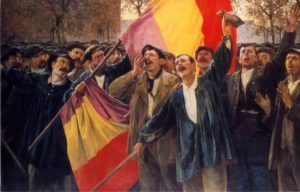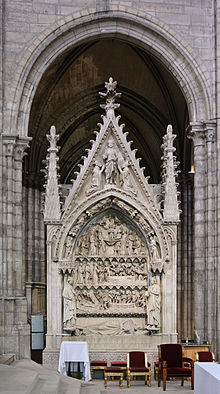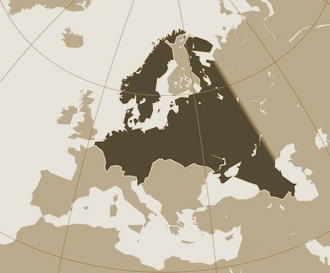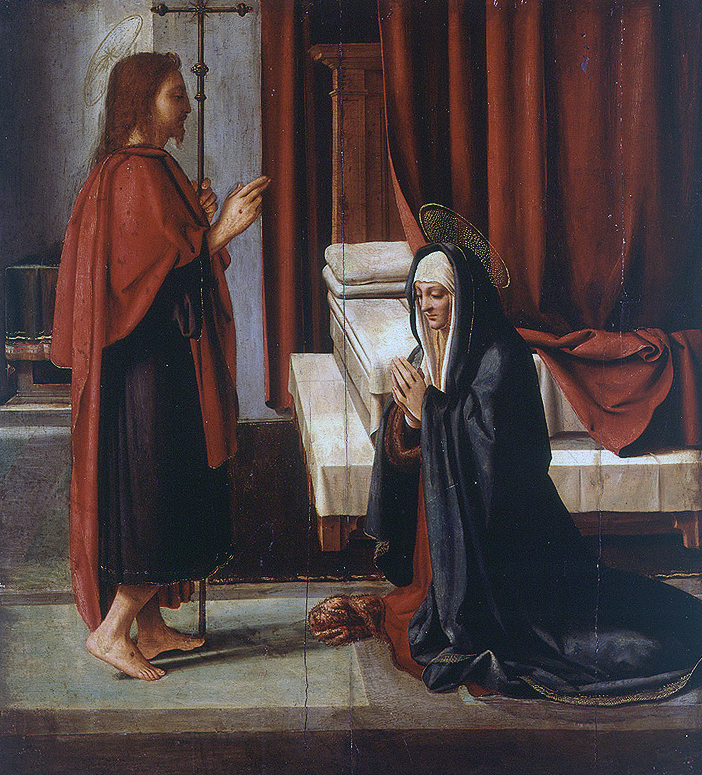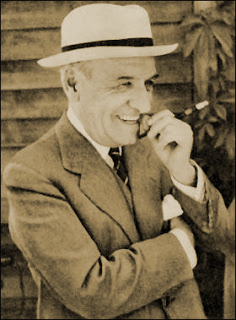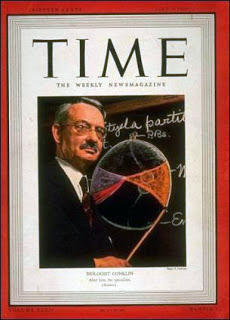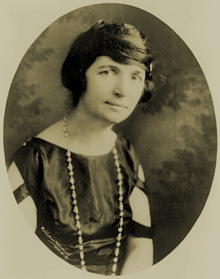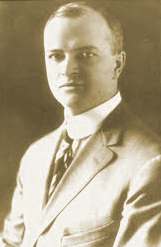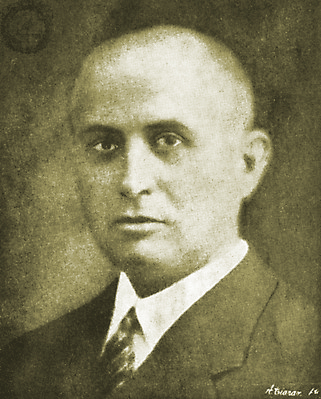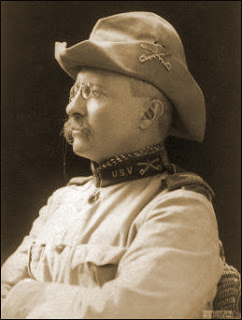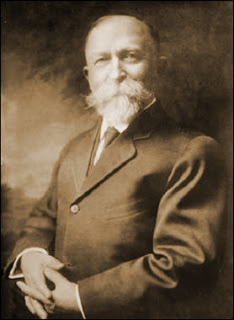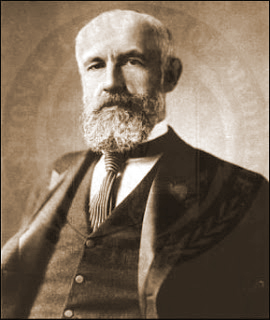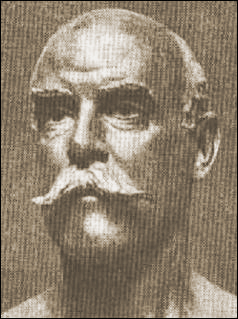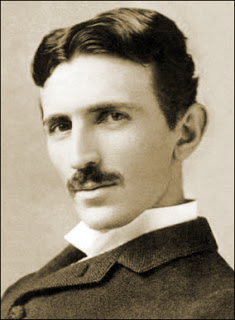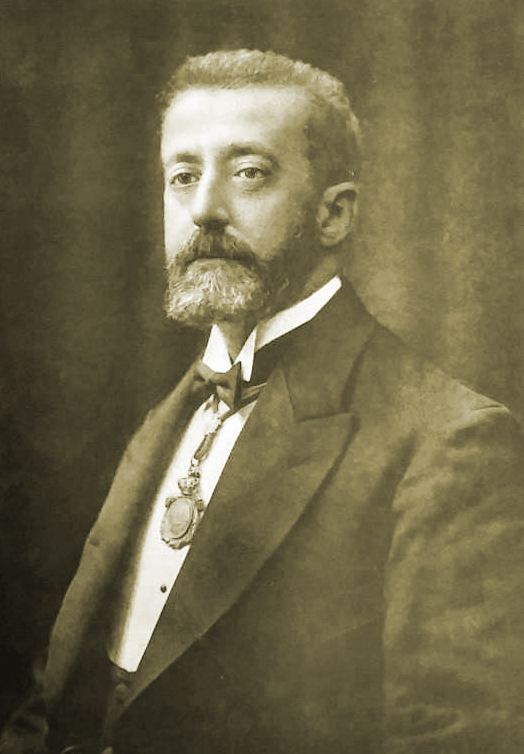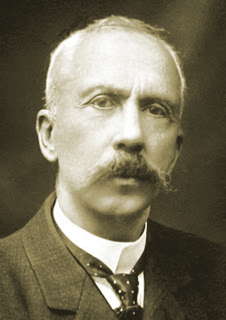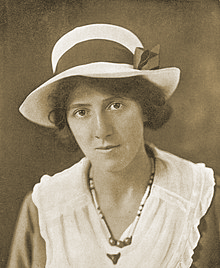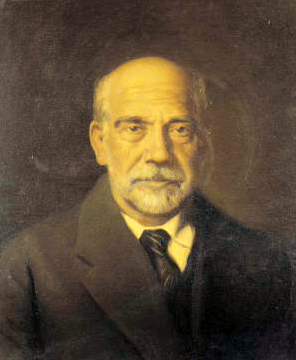Update of September 16, 2020: This essay has been edited for inclusion in my book Daybreak. I would suggest reading the much-corrected text instead of the text below (see ‘Two essential books’, which contains a link to the Daybreak PDF).
______ 卐 ______
Kevin MacDonald’s Preface to Giles Corey’s
The Sword of Christ (originally published: here)
Slightly edited, this entry copies and pastes the previous entries from the first to facilitate the visitor to read them in due order.
§ 1
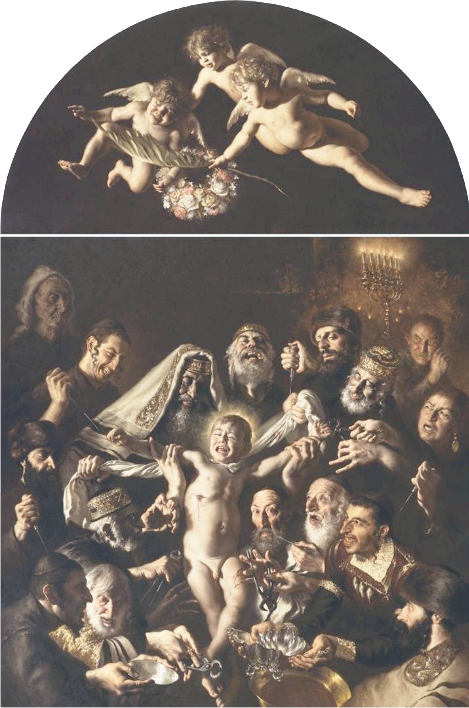
In this first entry about such book-review I just want to comment on a couple of subjects: the painting that appears in MacDonald’s book-review (see above) and what a commenter said on Counter-Currents.
As we can see in the comments section, several Counter-Currents commenters are either Christians or sympathetic to Judeo-Christianity, so they liked McDonald’s pro-Christian essay-review and some of them even have requested Corey’s book. One exception was commenter Asdk:
If we were to apply Kevin Macdonald’s perspective on the culture of critique to modern ideologies, Christianity would be very easily understood. Christianity is an ideology created by Jews to benefit the Jewish people, to break the feeling of tribal union of the peoples who are rivals to Jewish hegemony…
We can already imagine how different white nationalism would be if the webzine admins of Counter-Currents and The Occidental Observer were like Asdk!
Regarding Giovanni Gasparro’s painting, The Martyrdom of St. Simon of Trento reproduced at the beginning of this entry, it was painted this very year in old baroque style. The idea to create such painting reminds me of one of my favourite paintings by Hieronymus Bosch, reproduced below. The idea is the same: the bad guys—Jews—surround the child to be sacrificed or the divine rabbi to be crucified!
 Gasparro’s 2020 painting at the top of this article measures seven by five feet, and references a blood libel that led to the execution of several Jews in 1475. The scandal (some would call it moral panic) started around the disappearance and death of a Christian boy in Trento named Simonino. He was later made a saint and the day of his death, March 24, was included in the Roman martyrology—hence the cherubs in Gasparro’s painting—until its removal in 1965.
Gasparro’s 2020 painting at the top of this article measures seven by five feet, and references a blood libel that led to the execution of several Jews in 1475. The scandal (some would call it moral panic) started around the disappearance and death of a Christian boy in Trento named Simonino. He was later made a saint and the day of his death, March 24, was included in the Roman martyrology—hence the cherubs in Gasparro’s painting—until its removal in 1965.
In his article MacDonald tells us ‘This [blood libel] is a topic that I have never written about… However, we should not be surprised to find that such practices occurred’.
I am not going to take issue with him because what I want is to answer his Christian apologetics, not this new approach to the JQ. I will limit myself to point out that on the subject of blood libel I had already written in 2013 commenting on a brainwashing, politically-correct and philo-Semitic Spanish TV series, Isabel (Isabella I of Castile): times when MacDonald was apparently more sceptical about libel claims.
§ 2
MacDonald starts his review with these words:
Giles Corey has written a book that should be read by all Christians as well as white advocates of all theoretical perspectives including especially those who are seeking a spiritual foundation that is deeply embedded in the history and culture of Europeans.
White advocates of all theoretical perspectives? What would Revilo Oliver and William Pierce, geniuses so critical of Christianity, have opined about Corey’s book? What would Alex Linder opine today? Spiritual foundation embedded in European culture? MacDonald ignores the difference between Western Christian Civilisation and European civilisation, as explained in an article so old in this site (‘The Red Giant’) that it already appeared in the previous incarnation of it (in Blogspot, in the previous decade).
MacDonald also says about Corey’s book: ‘This is excellent scholarship’. If the scholarship is excellent, blood libel had to be historical. But as I said in my previous post I don’t want to discuss the Jewish Question but the Christian Question. MacDonald wrote: ‘Corey is well aware that contemporary Christianity has been massively corrupted’.
Completely false. Christianity today is as legitimate a form of Christianity as the others. Previous Christianisms were based on St. Augustine, and in the case of the Catholic Church, also on St. Thomas Aquinas. The Christianity of Pope Francis today, like the Christianity of the medieval St. Francis of Assisi, is based more on the direct message of the gospel. There is no true Christianity and an heretic Christianity: only Christians use anathemas and excommunicate each other, always claiming that their faction is the true Christianity. For non-Christians like us, St. Francis was as authentic Christian as St. Augustine, however different they were in their politics.
On the Counter-Currents thread, commenter Asdk added the following:
It sounds ridiculous, but in the middle of the Christian era, the Pope did it with the pre-Columbian natives; today the descendants of such an aberration populate most of Latin America and soon they will be the new majority of North America.
What happened in Latin America is relevant: something that I have said so many times in the racialist forums that I gave up because nobody was listening.
And they don’t listen for the simple reason that the miscegenation on a colossal scale in this American continent, perpetrated by the Spanish and Portuguese since the 16th century, just when they persecuted the Jews and the crypto-Jews, is such a demonstration that there is a Christian problem that it doesn’t even have to be argued: only to point out the events that occurred in the Spanish and Portuguese-speaking parts of the continent.
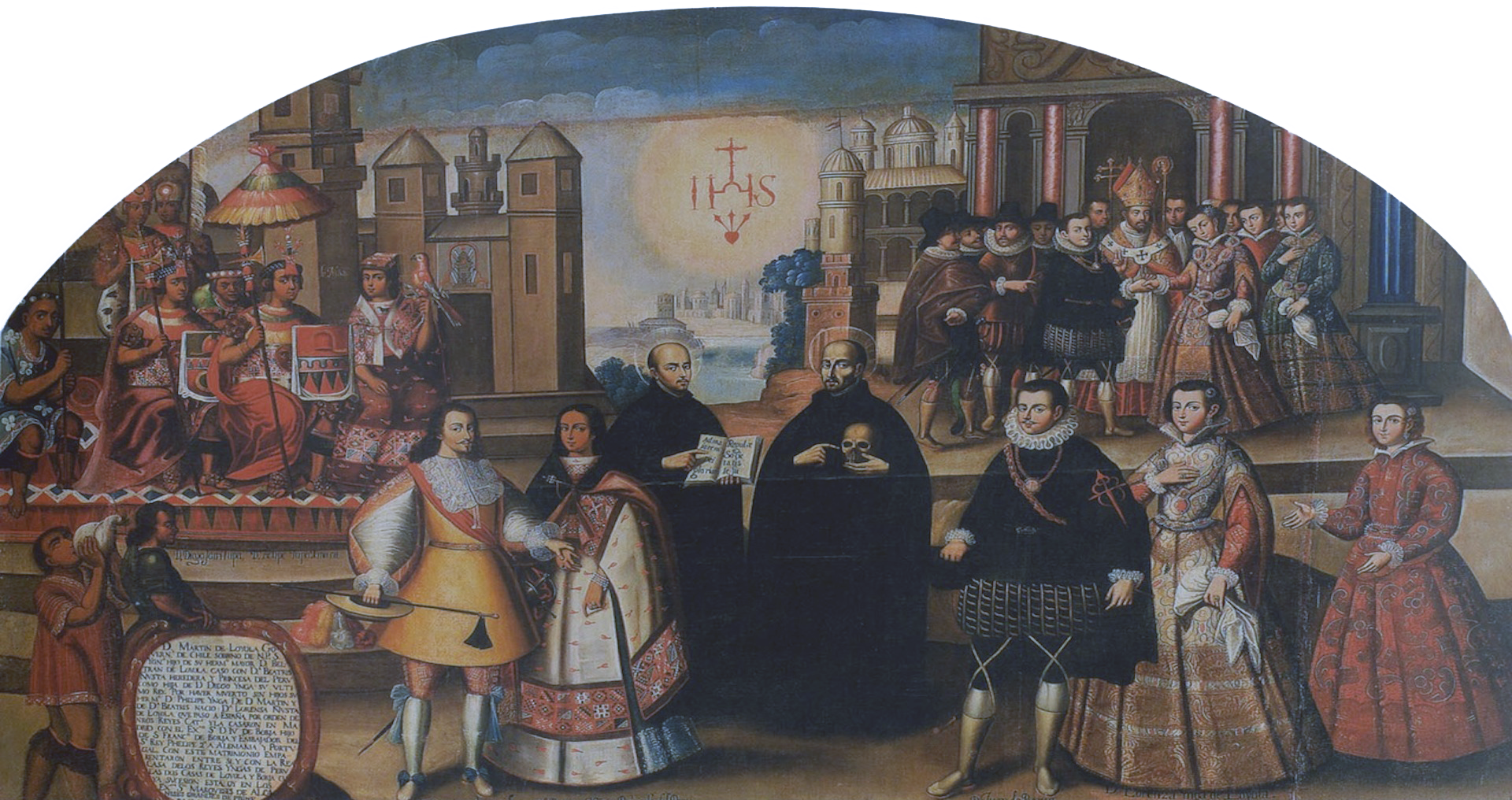
Last month I reproduced this image of a Spaniard
marrying an Indian with the approval of the Church.
MacDonald says the corruption is recent. How does he explain the greatest genetic catastrophe that occurred in his continent, when Jewry was being persecuted by the Inquisition? The trick MacDonald and white nationalists do has been to ignore history south of the Rio Grande—and history north of the Rio Grande I should say insofar New Mexico, Utah, Nevada, Arizona, California and Texas, before the 1840s war, belonged to Mexico and previously to New Spain!
For MacDonald to say that Christianity has been ‘massively corrupted’ he must be ignoring, of necessity, the history of those states that now belong to his country, since the New Spaniards never forbade interbreeding. Why doesn’t MacDonald see that more than half a billion mestizos in Latin America are the direct result of marriages between Iberian whites, Indians and blacks—marriages that both the Spanish crown and the Church approved?
The answer is clear: if he dared to see the history of New Spain his paradigm would collapse immediately, since it would be obvious that alongside a Jewish problem there has existed a huge Christian problem.
In the 1530s a Pope bull allowed the bachelor Iberians in the continent to marry Amerind women. This happened only a decade after the conquest of the Aztec Empire. As Asdk says, Christianity is blind to racial matters. And the Church did not give a damn about the biological havoc that such bull would cause. Incidentally, the Catholic Church was so powerful in New Spain that by the end of the 17th century it owned more than half of its territories. Like today’s elites, it was in the Church’s interest to rule over low-breed mestizos rather than high-IQ Aryans.
Plus ça change, plus c’est la même chose. This epigram by Jean-Baptiste Alphonse Karr in 1849 means ‘The more it changes, the more it’s the same thing’. Yes, there is no such a thing as ‘contemporary Christianity has been massively corrupted’ as MacDonald wrote. Only an ignorant of history in the American continent can say such a thing.
§ 3
Comment by Robert Morgan
C.T.: ‘I would be very interested to know what you think of that article (KMD’s review of Corey’s book)’.
The first thing that stands out is that MacDonald appears to have changed his opinion. I recall him writing at one point something to the effect of “Christianity isn’t necessarily the way forward”. Now he enthusiastically endorses a Christian revival, writing “I agree entirely with Corey’s conclusions and recommendations for a revival centered around the adaptive aspects of Christianity…”
C.T.: What strikes me as incredible is that Tom Sunic and others have told MacDonald that it is time to look at the role Christianity played in white decline. But KMD doesn’t seem to have the slightest intention of responding to these criticisms. He just ignores them’.
Yes, that’s true. His monomaniacal focus on Jews leads him astray, and he has always been loathe to examine the weakness of his philosophical underpinnings. Reading him, I get no sense that anything except what the Jews are doing is important. White people seem to exist for him only to be victims of the Jews.
I’ve already written about the inherent weakness of the Christian worldview, which is essentially a psychotic view of reality. Corpses come back to life, people aren’t really their bodies, but instead are “souls” trapped inside those bodies, demons not only exist but can somehow possess or take over those souls and bodies, things are conjured out of thin air, etc. Yet this is the worldview that MacDonald thinks is unequivocally good and “adaptive” because, after collapsing Western civilization once, and after a thousand years, it led historically to, among other things, the Enlightenment, the Age of Exploration, colonization of the New World, and science and high technology.
But these developments contained within themselves racially destructive consequences. Colonization of the New World caused race mixing, and out of control technology is causing mass extinctions of plant and animal species, perhaps irreversibly damaging the climate and ecosystem. This is supposed to be adaptive? Or again, consider the cultural consequences of scientific birth control technologies and abortion, which have done more to bring about the destruction of the nuclear family than any amount of Jewish animus. How was that adaptive?
From a philosophical point of view, MacDonald is being exceedingly naive, if not disingenuous. Whatever he approves of is adaptive. Anything he disapproves of isn’t. It’s the same approach he uses to Christianity. If Kevin MacDonald personally approves of it, it’s “good” Christianity (e.g., Luther’s disparaging comments about Jews, or Chrysostom’s), whereas if it’s a Christian ideology he doesn’t find it to his taste (e.g. the Scofield Bible, Christian Zionism, Christian churches sponsoring immigration, etc.) it’s been “corrupted”. These verdicts are absolute and eternal, too.
There’s no sense here that conditions may change, and behavior that was once adaptive may later be maladaptive; no sense that some of the “bad” things may have benefits, just as the supposedly “good” things contained racially destructive consequences. Christianity itself, notably, may be the most prominent of the things that were “bad” but had benefits; something that once was of use, but now is only an impediment. MacDonald’s view of it is static, not dynamic, and that’s a weakness.
No one can tell what is adaptive or maladaptive in advance. One can only pass judgement on that in retrospect, and even that judgement will unavoidably be from a particular point of view containing various assumptions and moral values. It’s not too surprising then that MacDonald, with his Christian moral values, praises Christianity as the way forward.
§ 4
MacDonald wrote:
Until the twentieth century, Christianity served the West well. One need only think of the long history of Christians battling to prevent Muslims from establishing a caliphate throughout the West—Charles Martel at the Battle of Tours, the Spanish Reconquista, the defeat of the Turks at the gates of Vienna. The era of Western expansion was accomplished by Christian explorers and colonists. Until quite recently, the flourishing of science, technology, and art occurred entirely within a Christian context.
In recent posts I have been talking about the need to rewrite history. This paragraph was only made possible by centuries of misinformation when it comes to historical facts.
I have read the only two stories that in English have been written from the point of view of racial preservation, that of William Pierce and that of Arthur Kemp. Since Pierce died before I woke up, I was only able to visit Kemp when he lived in a beautiful little town in England.
The only two stories that have been written under the POV of white advocacy run under one premise: Western civilisations have fallen due to the imperial phase that inevitably leads to miscegenation. (Of the two stories, only Pierce recommends extermination or expulsion of non-whites after having learned the tough lessons of history.)
One of my huge surprises when reading those two stories, Who We Are and March of the Titans, is that starting with a pro-white POV inverts many values that we had taken for granted in the more academic and conventional stories.
For example, it is striking to learn that the Greeks of the Dorian period were pure Nordids who came to the peninsula from the North. And something similar could be said of the first tribes that created the Roman Republic in the other European peninsula: they also were unmiscegenated Nordids. (He who wants to learn about the Nordic component of the founders of Greece and Rome in a single article could read a piece originally published in an American Renaissance periodical that I reposted: here.)
All of this had been kept from me by conventional historians simply because most of them have been Christians. And concerning more recent secular historians, they live under the sky of the ideas that led to the French Revolution regarding the equality of men: a doctrine breathed even in the American Declaration of Independence: ‘We hold these truths to be self-evident, that all men are created equal, that they are endowed by their Creator…’
Only when the reader of history repudiates this egalitarian premise he is ready to understand history. Otherwise he might be a scholar but his historical knowledge will be contaminated with such a false worldview that distortion is unavoidable. And conventional books of history are so replete of distortions that after the Nazi period and the two preliminary stories referred to above we must, like them, start from scratch.
I don’t think MacDonald has read the Pierce or Kemp books. If he had read any of them, he would have realised that what he says in the paragraph above cannot be sustained from this scratching point of view.
The following is what MacDonald seems to ignore:
The Christian era began with a hostile takeover of classical culture—that is, white culture—by a sect of Levantine origin. In the 4th and 5th centuries of the common era, in a destructive outburst like the one ISIS has perpetrated in more recent times, the temples of the white gods and sculptures displaying Aryan beauty, were destroyed by Judeo-Christian fanatics along with entire libraries of ancient wisdom. Karlheinz Deschner devoted his entire life to studying the true history of Judeo-Christianity and I translated several passages from his ten-volume Christianity’s Criminal History (here). If someone does not have the time to read this translated book, let him read a single article that summarises the white apocalypse that the ancient world suffered at the hands of this Semitic cult (here).
I must say something about Charles Martel mentioned by MacDonald and the Spanish Reconquista. Given my Hispanic origins, the history of Spain as told by Pierce and Kemp powerfully caught my attention several years ago, when I read their books. Both mention something that left me cold: the Iberian Visigoths—pure whites of the Nordid type—were deceived by Christians to commit miscegenation: a little piece of information that won’t be easy to find in conventional histories.
Remember that the Goths were a Germanic people who played a major role in the fall of the Western Roman Empire. In the first centuries of our era the Iberian Goths burned at the stake their fellow whites that dared to mix their precious blood with mudbloods. But the king of Hispania Recceswinth committed the greatest blunder in Iberian history: a blunder still unrecognised by normie intellectuals and normie historians as a blunder: but a gigantic blunder nonetheless. By converting to Christianity Recceswinth abolished the long ban on miscegenation (which reminds me of the rigorous Spartan ban against miscegenation), which resulted in the immediate mongrelisation of the Visigoths. The king of Hispania’s decision allowed any person of any racial origin, as long as he professed Christianity, to intermarry with the Germanic Goths. Such rupture of the ancestral prohibition against miscegenation and worship of the enemy god (the god of the Jews) occurred just a few decades before their territories… were invaded by the Moors!
If you worship thine enemy’s god, thou art defeated;
Adopt the religion of his fathers, thou wilt be enslaved;
And if thou propagate with his daughters, thou art destroyed
This crucial page in the history of Spain would have to be studied in far greater depth than the preliminary ‘stories’ of Pierce and Kemp. But I suspect that the Visigoths would have been invincible if, with the benefit of hindsight, they had expelled or exterminated the mudbloods—mainly peoples of Hispania of Semitic origin (non-Jewish Semites had begun to invade the Iberian peninsula since the times of the Carthaginians!).
Hispania aside, if the Roman Empire had not decayed, and let us remember that Gibbon blames the Christians for it, Islam wouldn’t even have had a chance of its spectacular conquests that only the gates of Vienna stopped, that MacDonald mentions. By subscribing to the official story, MacDonald is viewing Christianity as our saviour before Islam, not as the cause of the power gap that occurred after the Christians destroyed the classical world (or tricked the Visigoths), leaving the remaining whites at the mercy of a primitive Arabic tribe.
On the Western achievements that MacDonald mentions in the quote above, he is framing them as achievements of the Christian spirit. Nothing farther from the truth!
The white man had to fight for centuries against the prohibitions of the Church to regain his right to scientific research, technology, and art uncontaminated with biblical passages or the lives of the saints. Now my history teacher comes to mind, whose brothers were blond, at Colegio Madrid. She told us that in New Spain they used the trick of putting covers of lives of saints on secular books imported from Europe so they could pass through customs. And this happened until the beginning of the 19th century! Again, MacDonald is ignorant about history down the south of Rio Grande.
Above I linked a PDF with my translations of some passages from Christianity’s Criminal History. Below I would like to quote pages 291-293 of that book to counter MacDonald’s naïve vision:

The Western world darkens more and more
Culture was highly esteemed in the 4th and 5th centuries. It was one of the legacies of antiquity and enjoyed an ‘almost religious veneration’ (Dannenbauer). Still in the year 360 a law of the emperor Constantius could declare that education was the supreme virtue. And really many noble families of that time, Gallic and Roman, were consecrated to it and particularly in the bosom of the Senatorial proceedings. But they were already simple custodians of the culture, to which they did not enrich. And everywhere there were circles and social forces of a very different kind, even in the highest positions. The Christian king Theodoric the Great was no longer able to write his own name on the documents: neither could most of the Christian princes. Theodoric wrote the four letters LEGI (‘I read it’) by means of an aureus mold expressly forged for him. The instruction of the Goth children was practically forbidden by him, since, as he seems to have said, he who trembled before the master’s blows would never know how to despise the cuts and rushes of the sword in battle.
In Gaul, apparently, where the school system had flourished from the beginning of the 2nd century until the end of the 4th century, public schools are disappearing over the course of the next century, no matter how much here and there, in Lyon, Vienne, Bordeaux and Clermont there still are schools of grammar and rhetoric in addition to, naturally, the private ones. But all the teachings, at least the literary, served exclusively for the collection of material for sermons and treatises, to deal with the Bible and for the consolidation of the faith. Scientific inquiry was already a thing of the past: it no longer counted or was appreciated. The knowledge of Greek, which for centuries was the requirement of every authentic culture, became a rarity. Even the Roman classics, such as Horace, Ovid and Catullus, were cited less and less.
Libanius, the champion of Hellenistic culture, the most famous professor of rhetoric of the century, complains about the aversion aroused by that profession. ‘They see’, he says, referring to his students, ‘that this cause is despised and thrown on the floor; that does not bring fame, power or wealth but a painful servitude under many lords, parents, mothers, pedagogues and other students, who put things upside down and believe that it is the teacher who needs them. When they see all this they avoid this depreciated profession like a boat the pitfalls’.
In the time of Augustine there are hardly any schools of philosophy in the West. Philosophy is frowned upon, it is a thing of the devil, the original father of all ‘heresy’, and it causes fear to the pious. Even in a centre of culture as important as Bordeaux philosophy is no longer taught. And even in the East, the largest and most important of the universities of the Roman Empire, that of Constantinople, has only one chair of philosophy out of a total of 31. The knowledge of something that had existed for a long time was lost in almost all areas. The spiritual horizon became increasingly narrower. Ancient culture languished from Gaul to Africa, while in Italy it practically disappeared. The interest in natural science vanished. Also jurisprudence, at least in the West, suffers ‘havoc’, an ‘astonishing demolition’ (Wieacker).
The bishop Paulinus of Nola, who died in 431, never read a historian: a typical attitude of the moment. Whole eras fall in the oblivion, for example, the time of the Roman emperors. The only renowned historian in the late 4th century is Ammianus Marcellinus, a non-Christian. Entire synods forbid the bishops to read ‘pagan’ books. In short: scientific research ceases; experimental testing stops; people think increasingly with less autonomy. A few decades later no doctor could heal Bishop Gregory de Tours, a man with a mind full of superstitions, but he could miraculously be healed through a drink of water with some dust taken from the tomb of St. Martin.
Only clerics will still read.
§ 5
 St. John Chrysostom exhorting Aelia Eudoxia. Note how the Empress—the spouse of the Roman Emperor Arcadius—, in this painting by Jean-Paul Laurens, has people in her Byzantine entourage who are not whites.
St. John Chrysostom exhorting Aelia Eudoxia. Note how the Empress—the spouse of the Roman Emperor Arcadius—, in this painting by Jean-Paul Laurens, has people in her Byzantine entourage who are not whites.
Kevin MacDonald wrote:
Such individualism was not disastrously self-destructive. As Corey notes, “Christian universalism historically posed little to no danger to white survival because it was preached by whites living in a world ruled by whites; it was only in the multicultural Egalitarian Regime inseminated in the mid-twentieth century that Christian sacrifice was transformed into a call for racial suicide.”
Precisely because MacDonald, like most white nationalists who do not follow Pierce and Kemp, knows little of true history, he is unable to see that healthy religions promote the good of a tribe, and unhealthy religions, a phenomenon that appears in the imperial phase of a civilisation, forget what’s good for the tribe and start to speak solely and exclusively in individualistic terms, of ‘individual salvation’. Richard Carrier, whose book appears on the sidebar, has studied this phenomenon in several Mediterranean religions at the time of the decline of the Roman Empire, and MacDonald and those who believe that any form of universalism was not ‘disastrously self-destructive’ should become familiar with his work.
That religious individualism was toxic from the beginning is evident in the fact that in shifting from the good of the group to individualism (the Christian must think above all about the salvation of his soul), the foundations for miscegenation are laid. Once Constantine changed the name of the old Byzantium to Constantinople, the new capital of the Empire became a melting pot for all the races of the Mediterranean, in which the pure Nordid blood of the patrician Romans was forever lost.
MacDonald wrote:
Instead, Corey advocates a revitalization of Medieval Germanic Christianity based on, in the words of Samuel Francis, “social hierarchy, loyalty to tribe and place (blood and soil), world-acceptance rather than world-rejection, and an ethic that values heroism and military sacrifice.” This medieval Christianity preserved the aristocratic, fundamentally Indo-European culture of the Germanic tribes. This was an adaptive Christianity…
Adaptive Christianity, really? Some historians say Medieval Germanic Christianity started with Charlemagne, right? Kemp told me that he would rate Charlemagne well up in the top five most evil characters of European history. I recommend Thomas Hodgkin’s The Life of Charlemagne to those who have swallowed the Christian version of this evil man. If we keep in mind Deschner’s Christianity’s Criminal History we will see that even after the Aryan apocalypse of the 4th and 5th centuries, there were still many Germanic tribes in the 6th and 7th centuries who refused to worship the god of the Jews. Charlemagne forced these uncontaminated Nordids to worship the enemy god: a historical milestone related to that tardive metastasis, the philo-Semitic stage that the US is currently suffering.
MacDonald wrote:
My view, developed in Chapter 3 of Separation and Its Discontents: Toward an Evolutionary Theory of Anti-Semitism is that traditional Christian theology was fundamentally anti-Jewish and was developed as a weapon which was used to lessen Jewish economic and political power in the Roman Empire. Here Corey describes the writings of the fourth-century figure, St. John Chrysostom [see painting at the top of this § 5], who has a chapel dedicated to him inside St. Peter’s Basilica in Rome as well as a statue outside the building. His writings on Jews are nothing less than scathing and reflect long-term tensions between Jews and Greeks in Antioch. And Chrysostom was far from alone in his hatred… The traditional Church was certainly far from friendly toward Jews.
Despite the fact that the Muslim Jihadists are anti-Jewish, many contemporary Jews promote the Islamisation of Europe for the simple fact that the best goyim (whites) must be destroyed according to them. Jews are willing to have some of their own fall in order to win their ultimate battle against the Aryans.
Something similar happened with the hostile takeover of the classical world by Judeo-Christians, many of whom had Semitic blood. Their anger was directed against the white world. They didn’t care that those fanatics MacDonald talks about committed anti-Jewish acts. What mattered was to overthrow the classical world at all costs.
MacDonald ignores that what was ultimately at stake, as explained in the climax of ‘Rome against Judea; Judea against Rome’ in The Fair Race, was this: ‘435 CE: In this year occurs the most significant action on the part of Emperor Theodosius II: He openly proclaims that the only legal religion in Rome apart from Christianity is Judaism! Through a bizarre, subterranean and astonishing struggle, Judaism has not only persecuted the old culture, and Rome, its mortal archenemy, adopts a Jewish creed—but the Jewish religion itself, so despised and insulted by the old Romans, is now elevated as the only official religion of Rome along with Christianity!’ That diabolical political game of different kinds of Semites is what MacDonald has failed to see.
MacDonald speaks highly of St. John Chrysostom, as if this ‘anti-Semite’ was a champion for the Aryan cause. What did this saint, so revered among clueless white nationalists do? Do nationalists know what happened to the immense Temple of Artemis, one of the Seven Wonders of the Ancient World?

It was built near Ephesus in the 6th century BCE over an area considered sacred since, at least, the Bronze Age. Its construction took 120 years and it could be said that it was comparable to a cathedral.
St. John Chrysostom and his henchmen flattened it in 401 following a Christian emperor’s edict—the year after Chrysostom had instigated the massacre of 7,000 blond Goths in Constantinople! The stones were used for a tomb and a bath-house and a cross was raised on the spot where Diana’s statue had stood. What remains today of the temple can be seen: here.
It was the religion of the pure white that had to be flattened at all costs, not the Judaism that survived the Aryan apocalypse of the ancient world.
It is clear that history must be rewritten from the POV of the priest of the 14 words, and that stupid books like Corey’s must be vehemently repudiated if we want to save the race from extinction. Not only books of this type are bad history: they are as toxic reading of history as that which we could read from a Jew. But Christians are artificial Jews, right?
§ 6
MacDonald wrote:
And although Protestantism was generally far more amenable to Jewish interests even before its current malaise, there certainly are exceptions. Here Corey emphasizes Martin Luther’s writings on Jews. Luther emphasizes Jewish hatred toward Christianity and their sense of superiority vis-à-vis Christians, seeing the latter as “not human; in fact, we hardly deserve to be considered poor worms by them.”
I’ve been saying that people like MacDonald don’t know the stories of the white race written not by charlatans like Giles Corey, but by genuine racialists. Let’s read what William Pierce says in Who We Are about Luther:
The Reformation. Another factor which undoubtedly made the West more susceptible to the Jews was the Reformation, the lasting effects of which were confined largely to Europe’s northwestern regions, in fact, to the Germanic-speaking regions: Germany, Scandinavia, England and Scotland, Switzerland. The Church of Rome and its Eastern Orthodox offshoot had always been ambivalent in their attitudes toward the Jews. On the one hand, they fully acknowledged the Jewish roots of Christianity, and Jesus’ Jewishness was taken for granted. On the other hand, the Jews had rejected Jesus’ doctrine and killed him, saying, “His blood be on us and on our children” (Matthew 27:25), and the medieval Church was inclined to take them at their word. In addition to the stigma of deicide the Jews also bore the suspicion which naturally fell on heretics of any sort. During the Middle Ages people took Christianity quite seriously, and anyone professing an unorthodox religious belief, whether he actively sought converts or not, was considered a danger to the good order of the community and to the immortal soul of any Christian exposed to him.
What the Protestant reformers did for the Jews was give the Hebrew Scriptures a much more important role in the life of the peoples of Europe than they had enjoyed previously. Among Catholics it was not the Bible but the Church which was important. The clergy read the Bible; the people did not. The people looked to the clergy for spiritual guidance, not to the Bible. Among Protestants that order was reversed. The Bible became an authority unto itself, which could be consulted by any man. Its Jewish characters—Abraham, Moses, Solomon, David, and the rest—became heroic figures, suffused with an aura of sanctity. Their doings and sayings became household bywords. It is ironic that the father of the Reformation, Martin Luther, who inadvertently helped the Jews fasten their grip on the West, detested them and vigorously warned his Christian followers against them. His book Von den Jueden und ihren Luegen (On the Jews and their Lies), published in 1543, is a masterpiece. Luther’s antipathy to the Jews came after he learned Hebrew and began reading the Talmud. He was shocked and horrified to find that the Hebrew religious writings were dripping with hatred and contempt for all non-Jews…
Alas, Luther could not have it both ways. He had already sanctified the Jews by elevating the status of their history, their legends, and their religion to that of Holy Writ. His translation of the Old Testament into German and his dissemination of the Jewish scriptures among his followers vitiated all his later warnings against the Jews. Today the church he founded studiously ignores those warnings…
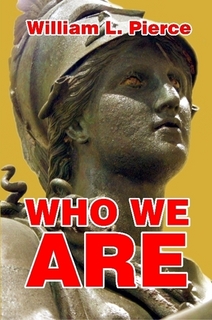
The great tragedy of Luther is that he failed to… recognize that no religion of Jewish origin is a proper religion for men and women of European race. When he cut himself and the majority of the Germanic peoples off from Rome, he failed at the same time to cut away all the baggage of Jewish mythology which had been imposed on Europe by Rome. Instead he made of that baggage a greater spiritual burden for his people than it already was. The consequence was that within a century of Luther’s death much of Northern Europe was firmly in the grip of a new superstition as malignant as the old one, and it was one in which the Jews played a much more explicit role. Before, the emphasis had been on the New Testament: that is, on Christianity as a breakaway sect from Judaism, in which the differences between the two religions were stressed. The role models held up to the peoples of Europe were the Church’s saints and martyrs, most of whom were non-Jewish. The parables taught to children were often of European origin. Among the Protestants the Old Testament gained a new importance, and with it so did the Hebrew patriarchs as role models, while Israel’s folklore became the new source of moral inspiration for Europe. Perhaps nothing so clearly demonstrates the change, and the damage to the European sense of identity which accompanied it, as the sudden enthusiasm for bestowing Hebrew names on Christian children.
The Reformation did more for the Jews than merely sanctifying the Old Testament. It shattered the established order of things and brought chaos in political as well as spiritual affairs—chaos eagerly welcomed by the Jews. Germany was so devastated by a series of bloody religious wars that it took her a century and a half to recover. In some German principalities two-thirds of the population was annihilated during the conflicts between Catholics and Protestants in the period 1618-1648, commonly known as the “Thirty Years War.” Everywhere during the 17th century the Jews took advantage of the turmoil, moving back into countries from which they had been banned (such as England), moving to take over professions from which they had been excluded, insinuating themselves into confidential relationships with influential leaders in literary and political circles, profiting from the sufferings of their hosts and strengthening their hold, burrowing deep into the rubble and wreckage of medieval society so that they could more easily undermine whatever rose in its stead. / End of Pierce’s quote
Pierce fell short. Nietzsche saw beyond what Pierce saw: Luther revitalised Christianity when it had begun to die in Rome itself! Had Cesare Borgia reached the papacy in a world without Luther, the transvaluation of values—the salvation of whites!—could’ve started from the Renaissance in Rome. But exactly the opposite happened: the Reformation and the Counter-Reformation vindicated Christianity. One thing is clear: MacDonald is not a reader of Nietzsche. If there is a quote that I have quoted more than once, it is what Nietzsche says about Luther (skip until you see § 61: here).
MacDonald wrote:
Mainstream Christianity from traditional Catholicism to mainstream Protestantism was fundamentally adaptive in terms of creating a healthy family life.
Here MacDonald is not only ignoring the subject mentioned in §2: that a cohesive family is useless to our cause if marriages in Catholic Latin America have been, for half a millennia, between white and non-white. And regarding Europe MacDonald is also ignoring the catastrophe that occurred in Portugal. After their forays into Africa the Portuguese not only imported blacks to the Iberian Peninsula, but unlike the Anglo-Germans in North America who originally did not marry them, the Portuguese immediately proceeded to stain their blood forever, courtesy of an Iberian, Recceswinth-like Christianity that didn’t care about racial preservation.
MacDonald writes about the traditional family in Christendom ignoring what happened in immense territories where Catholicism had a grip on the white psyche. And even in the US where miscegenation was not perpetrated for quite some time, the havoc that Puritans caused for their infatuation with the sacred book of the Jews can be seen in the names they gave their white children. Pierce is worth quoting again. He wrote:
Even before the Reformation a few Jewish names had been adopted by Europeans, but they were in most cases variations of the names of Christian saints of Jewish race: John (Heb. Johanan), Matthew (Heb. Mattathiah), Mary (Heb. Miriam), Ann (Heb. Hannah, supposedly the name of the maternal grandmother of Jesus). In addition, a few other purely Hebrew names had come into fairly common usage in parts of Christian Europe prior to Luther’s time: Adam, Daniel, David, Michael, Elizabeth, and Sarah are examples. During the l7th century, however, practically every name from the Old Testament came into general use. The madness reached its height among the Puritans, who scorned the names of their own ancestors and christened their offspring with such atrociously alien appellations as Israel, Amos, Ezekiel, Lemuel, Deborah, Reuben, Esther, Abner, Samuel, Nathan, Noah, Ephraim, Gideon, Jesse, Rachel, Susannah, Leah, Elihu, Abigail, Benjamin, and Abraham. The Puritans brought this pernicious habit with them to America, and Hebrew names were more common in the New World than European names during the Colonial period. / End of William Pierce’s quote
Don’t be surprised, professor MacDonald, that the US became the #1 philo-Semitic country of the world! So what’s the primary cause of white decline, Judaism or Christianity? What’s worse: the external enemy—the Jew—or the traitor—the Christian?
§ 7
Comment by Vig
Reading the comments here it shows how quickly attention steers away from the core topic and gets into the distraction of details.
As I have understood the issue here is that a reputed academic scholar has made significant statements as a result of a serious psychological research into the causes of the downfall of the culture and influence of the white Europeans. All this clearly under the banner of a conservative and right wing oriented view, which led him to the conclusion that Jewdom is the ultimate culprit of the (our) downfall.
 Then the question arises, as Cesar has put forward on many occasions, that a man of such academic reputation as KMD has not dared to make the next logical step in his research and expose the phenomenal similarity between Judaism and Christianity?
Then the question arises, as Cesar has put forward on many occasions, that a man of such academic reputation as KMD has not dared to make the next logical step in his research and expose the phenomenal similarity between Judaism and Christianity?
Lack of courage, unwillingness or just lack of depth? Respectable as he may be he did not have the guts to be like a Nietzsche and dig till rock bottom, and criticize his own paradigms.
If you ask me the whole thing of academic debate especially in the field of the “alpha sciences” like psychology, is very often sheer sophistry. To see what the words really stand for you have to meet the author in person. Then why is this Christianity again and again creeping around the corner?
Because it is so deeply ingrained in our value system that it has become sub conscious. Then the question arises how much suffering will be needed to bring this festering wound to the surface?
If the more representative figures of the white nationalist movement fail to open up to the issue of the corrupting influence of Christianity, that means they did not have the existential experience that allowed you and me to understand the human psyche on a deeper level than the level that they are mentally operating on.
On that basis indeed white nationalism is a flawed initiative.
What I mean here is that traumatic experiences can initiate an emotional maturity that is beyond the retarded state that western humanity is in at the moment.
I think it is not negation but simple incapacity from their side.
The fact that there will come no answer from that side is because their whole social life has been narrowed down to the verbal, intellectual Hegelian discourse and exchange of ideas, while the answer to our crisis cannot be addressed on this level at all.
It is an ego problem. The ego blocks the expression of certain inner states that, if expressed, would indicate that one is emotionally and instinctively degenerated if at all recognized as such.
To have an authentic knowledge of one’s emotional and instinctive nature that makes the use of intellectual projections absolutely unnecessary, has become very rare for western man. Eine Kulturkrankheit.
§ 8
Kevin MacDonald wrote:
As I write this in the summer of 2020, we are experiencing what feels like the end game in the Jewish conquest of white America.
End game of the Jewish conquest or of the Christian conquest of the Aryan soul? Has MacDonald read the words of Joseph Walsh on the sidebar?: The deep-seated death-wish that seems to have taken hold of the collective subconscious psyche of the Aryan race after Hitler’s death is I believe a consequence of centuries of Jewish brainwashing via Christianity and its secular offshoots.
Once the majority of Aryans had rejected Hitler they embraced what remained of Christianity, Christian ethics, with a vengeance. Aryans are aware of what our race is capable of becoming from the photos and films of NS Germany and many of them hate and fear their own race’s potential for greatness due to attachment to an irrational morality and so our race is in a sort of self-destruct mode.
If the National Socialists had won the Second World War our race would not have entered into this intense struggle to overcome the oldest and most effective weapon of the Jews, Christianity. So this post-1945 struggle with the mental disease of Christianity does serve a purpose in that it will either destroy us for good or make us even stronger.
Before Aryans can annihilate the biological Jew on the physical level they must destroy the alien Jewish mind virus on the mental level by overcoming Christian morality. /End of Walsh’s quote
But MacDonald wrote:
I agree entirely with Corey’s conclusions and recommendations for a revival centered around the adaptive aspects of Christianity…
And what are Giles Corey’s conclusions and recommendations? Corey wrote, as quoted by MacDonald:
We must not tolerate subversion. Liberalism must go; we cannot afford to repeat the mistakes of the Enlightenment. We cannot afford to countenance any further anti-American, anti-family, anti-white speech, and this should be reflected in a new Constitution. Just as conservatism was not enough, the United States Constitution was not enough, with gaps that left it gaping wide for judicial “interpretation.” For another thing, we must circle the wagons and inculcate the Männerbund, restraining our individualism at least for the time being. For another, we must return to (((our Lord and Savior))).
I have added the triple parentheses to MacDonald’s quote of Corey. What these guys don’t know is that, as a commenter put it, thinking you can aid in saving the white race while, at the same time, bending the knee to Jewish deities—Yahweh and Yeshua—is some kind of combination of insane, dishonest, cowardly, naive, or very stupid. To bottom line it, it won’t and can’t work (see Ferdinand Bardamu’s complete essay that MacDonald rejected for his webzine: here).
This demolition that I have made of such a respected figure in white nationalism moves me to leave this site with these last entries for a period of time without adding new entries, although I will be answering the comments that don’t get off the subject of MacDonald and the Christian question.
Finally, even though I left the essay by a Spaniard, ‘Rome against Judea; Judea against Rome’ linked in a sticky post for a long time, it doesn’t seem that many visitors have noticed that that essay appears in Part I of The Fair Race, the PDF of which can be accessed on the sidebar. So I have no choice but to publish it in PDF separately and put it back in a sticky post. It is a shame that people like MacDonald have not read an essay that I consider central to understanding this site.
Especially the ‘Judea against Rome’ section of that essay explains the Jewish question better than any article MacDonald has published on The Occidental Observer, as the Spanish writer goes to the historical roots of the darkest hour in the West.
